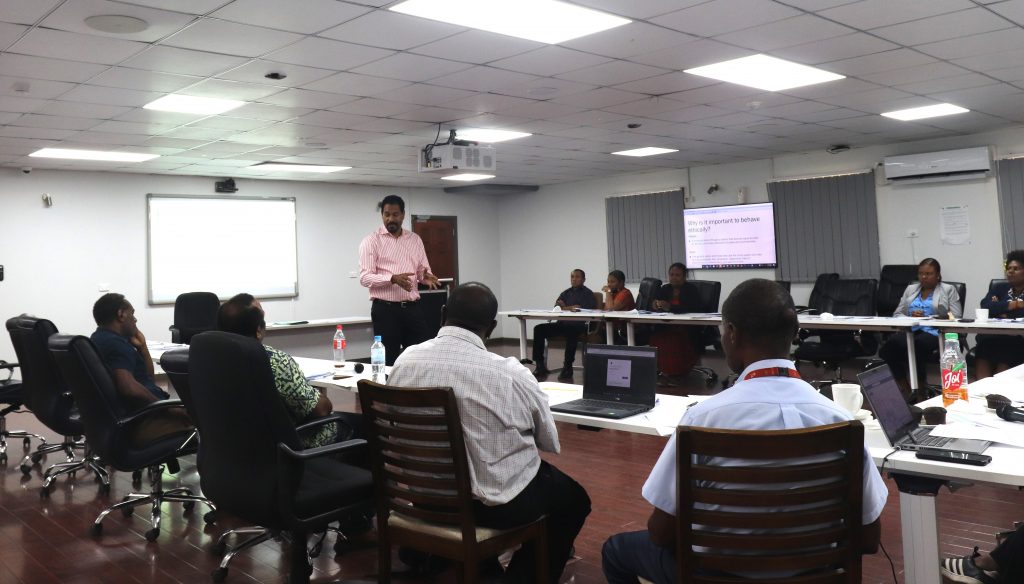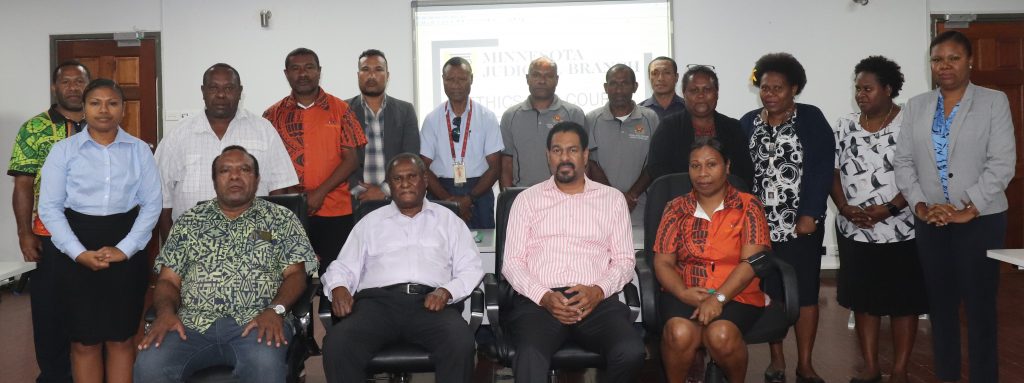Ethics and Integrity Workshop
Justice John Carey delivered the last Ethics and Integrity workshop to fourteen National and Supreme Court staff on Friday 17 November at the PNGCJE training room.
The participants included staff from the NJSS Buildings and Facilities division, Finance division, Public Relations unit, National Court Registry, Court Reporting Services and the ADR Services.
In his presentation, Justice Carey shared a video on what it means to have integrity. The video focused on the definition of the concept as an internal quality that people possess that others may not see. The video’s emphasis on honest self-reflection is particularly noteworthy. It is through such introspection that a person can identify areas for improvement and strive to be better individuals. As reiterated by the presenter, integrity is not just about how people act when others are watching, but also about what they do when no one else is around.
Judge Carey provided a comprehensive discussion on ethics and integrity, emphasizing the importance of understanding the difference between right and wrong, and lawful and unlawful. This is a crucial aspect of any society, as it helps maintain order and promotes fairness.
The facilitator also discussed the context of ethics and integrity in relation to Papua New Guinea’s customary practices emphasizing the importance of understanding that what may seem right in ones’ culture might be viewed differently in another.
He emphasized that ethics is not just about following the law, but also about recognizing and doing what is right. It involves honesty, integrity, and respect for others.
The one-day workshop covered the following topics:
- What is Ethics and Integrity;
- Why is Ethics and Integrity important in the workplace; and
- Components of Ethics and Integrity.
Justice Carey’s emphasis on the importance of ethics and integrity training for newly appointed NJSS officers is indeed crucial. Such training can equip officers with the necessary knowledge of the policies or regulations in place, enabling them to make important decisions based on ethics and integrity.





